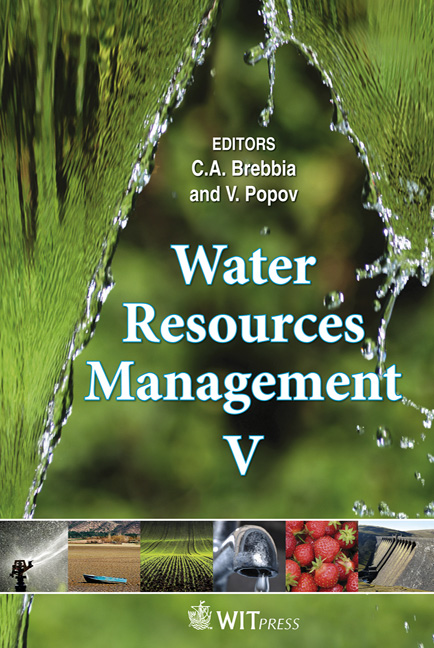Verification Of Crop Coefficients For Chickpeas In The Mediterranean Environment
Price
Free (open access)
Transaction
Volume
125
Pages
10
Page Range
493 - 502
Published
2009
Size
667 kb
Paper DOI
10.2495/WRM090441
Copyright
WIT Press
Author(s)
P. Garofalo, A. V. Vonella, S. Ruggieri & M. Rinaldi
Abstract
Crop coefficient (Kc) is the multiplier factor to estimate the actual from reference evapotranspiration; for many crops, also in consideration of changing cultivar and pedo-climatic conditions, a verification of Kc and length of different stages is important for a more precise irrigation scheduling. The aim of this research is to calculate crop coefficients for chickpeas cropped in Southern Italy, with water supply in order to obtain the best seed yield. A field experiment was carried out on chickpeas sown in December in a 1 ha plot, where in the middle two weighing lysimeters were located. One irrigation at flowering was managed with 60 mm of water; the potential evapotranspiration was determined with the Penman-Monteith formula, whereas the effective daily water consumption was obtained by difference in the lysimeters weight. The Kc values measured at different crop stages were compared with those reported by Food and Agriculture Organization of the United Nations (FAO) paper n. 56. The obtained results suggest that the initial stage length is approximately 80 days, and the relative Kc is 0.54; the development stage persists for 35 days. The mid-season stages took 40 days with a Kc of 0.97. Finally, the late season stage persists for 35 days, with a Kcend value equal to 0.29. From this work, we can update the Kc proposed by the FAO, and particularly give a greater value for Kc for the initial stage (0.54 vs 0.4), while we can suggest a Kcend lower than that reported by the FAO (0.29 vs 0.35). Keywords: cicer arietinum L., evapotranspiration, water requirement, FAO crop coefficient.
Keywords
cicer arietinum L., evapotranspiration, water requirement, FAO crop coefficient





